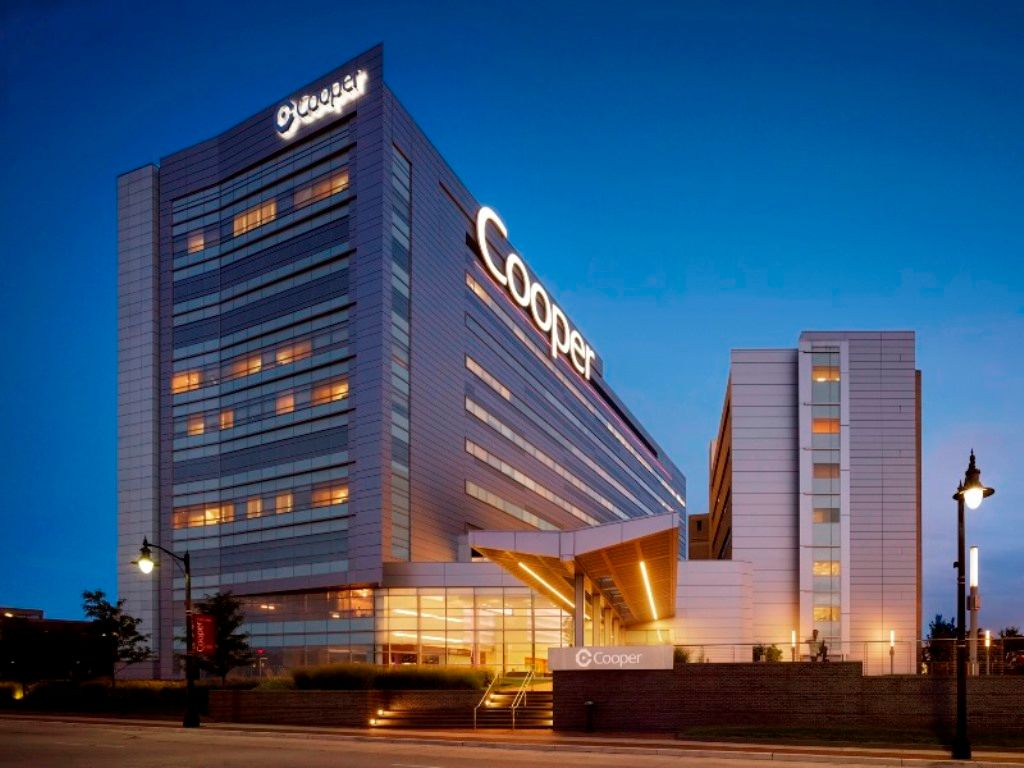New Jersey hospital systems move closer to merger
Cooper University Health Care and Cape Regional Health System are planning to come together. A state court has signed off on the deal.
After more than 18 months of work and planning, two New Jersey hospital systems are on the cusp of coming together.
Cooper University Health Care and Cape Regional Health System have received court approval for their merger plans.

Cooper University Health Care and Cape Regional Health System have received court approval for their consolidation plans. The New Jersey Superior Court in Cape May County has approved Cape Regional’s plans to join Cooper. The court signed off on the transaction this week, officials said.
The two health systems first announced their merger plans in December 2022. Cooper and Cape Regional brokered a definitive agreement in April 2023.
Together, Cooper and Cape Regional will form a regional system with nearly 11,000 employees.
Cooper, an academic health system, boasts more than $2 billion in revenue. Cooper operates its 663-bed flagship hospital in Camden, New Jersey, just across the Delaware River from Philadelphia. The system also includes the MD Anderson Cancer Center at Cooper, an outpatient surgery center and more than 100 ambulatory clinics across southern New Jersey.
Cape Regional operates a 242-bed hospital and clinics serving patients in Cape May County in the southern tip of New Jersey.
When they first announced the deal, Cape Regional officials said the financial landscape had become more challenging for smaller hospitals. Cape Regional executives hailed the court’s blessing.
“We are thrilled to have this final approval and look forward to joining Cooper University Health Care,” Joanne Carrocino, president and CEO, Cape Regional Health System, said in a statement. “Our respective health systems have a long history of working together to serve the residents and visitors of Cape May County.”
George E. Norcross III, chairman of Cooper’s board of trustees, hailed the “historic agreement,” and said Cape Regional patients would get more access to specialists and cutting-edge treatments.
“As the leading academic health system in the region, we committed to working with our new colleagues to provide the highest level of advanced health care and serve the health care needs of more communities across southern New Jersey,” Norcross said in a statement.
Garry Gilbert, chairman of Cape Regional’s board of trustees, noted that the two systems have been working hard to complete the merger over the past 18 months.
“We are delighted that our work has come to fruition,” Gilbert said in a statement. “As we forge together as one, we remain committed to providing the highest quality health care to our communities.”
The deal also expands Cooper’s reach to the Jersey Shore, a magnet for visitors across the Northeast. Anthony J. Mazzarelli, MD, co-CEO of Cooper, said the merger will provide more services to the region.
“We are happy to have this final approval so we can finally focus on providing the highest quality of care to the residents and visitors at the shore,” Mazzarelli said in a statement.
Cooper is also moving forward with a $2 billion plan to revamp its campus. The system is enjoying improved financial strength, recently earning an "A" rating from S&P Global Ratings.
The Philadelphia-South Jersey region has seen increasing consolidation of health systems recently.
Jefferson Health and the Lehigh Valley Health Network said earlier this month that they have reached a definitive agreement to come together. Jefferson, based in Philadelphia, is planning to combine with Lehigh Valley to create a system with 30 hospitals, making it one of the nation’s largest nonprofit health systems. Lehigh Valley is based in Allentown and serves northeastern Pennsylvania.
The University of Pennsylvania Health System announced in January that it plans to acquire Doylestown Health, a health system in the Philadelphia suburbs. Doylestown would become a part of Penn Medicine when the deal is complete. Based in Philadelphia, Penn Medicine has been expanding outside the city and acquiring other hospitals in the suburbs in recent years.
AtlantiCare, another southern New Jersey hospital system based in Atlantic City, isn’t pursuing any merger plans, but the system is aiming to transform the organization. AtlantiCare is planning to rebuild its campus and build a new medical school in partnership with the Drexel University School of Medicine.
Read more: Why hospital merger activity is expected to increase
Telehealth faces a looming deadline in Washington | Healthy Bottom Line podcast
February 12th 2025Once again, the clock is ticking on waivers for telemedicine and hospital-at-home programs. Kyle Zebley of the American Telemedicine Association talks about the push on Congress and the White House.